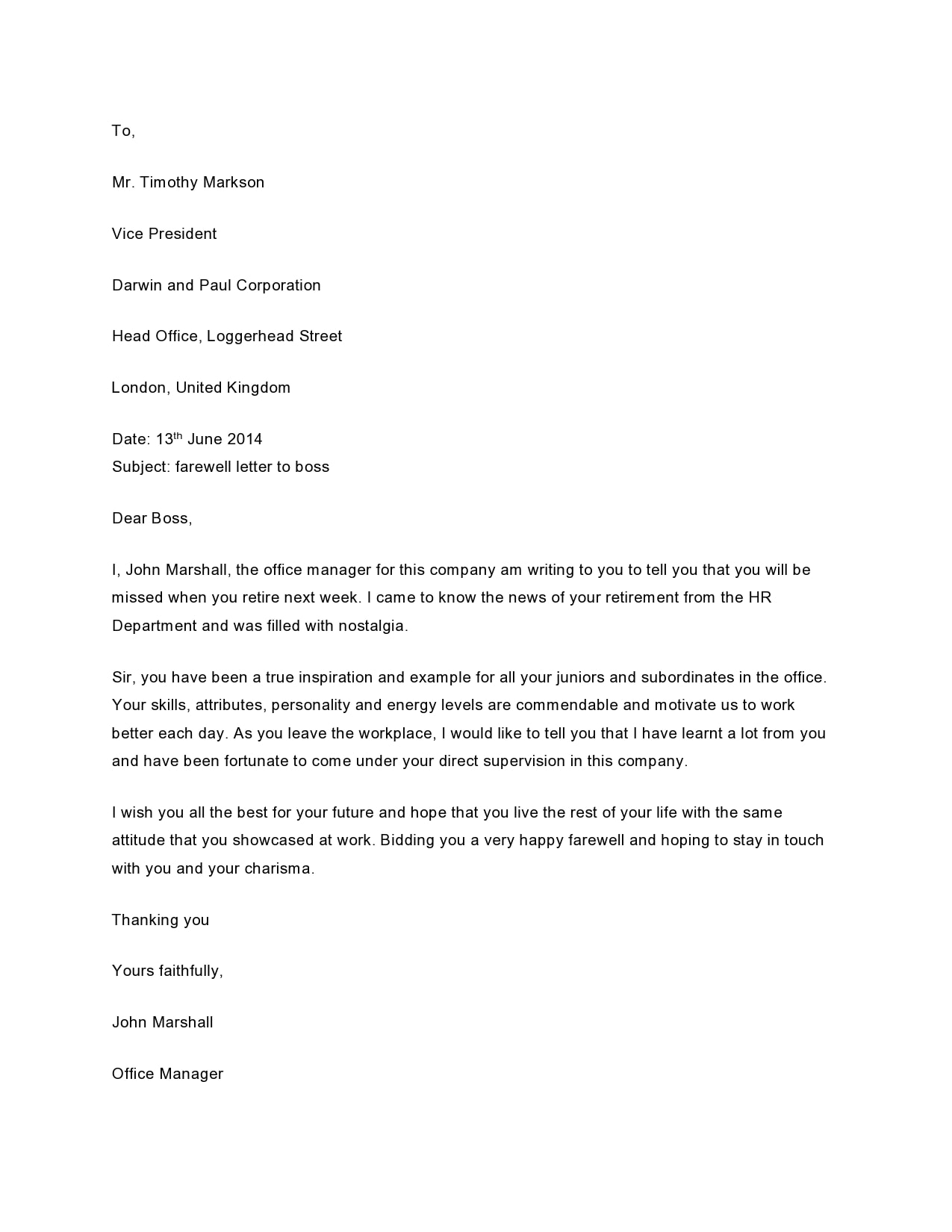How To Tell.your Boss You're Leaving

Navigating the professional landscape often involves difficult conversations, and few are as delicate as informing your employer of your departure. Leaving a job, while a necessary step for career advancement or personal growth, requires careful planning and execution to maintain professional relationships and ensure a smooth transition.
This article provides guidance on how to approach this crucial conversation, focusing on timing, delivery, and essential etiquette. The goal is to empower employees to handle their resignation with confidence and professionalism, minimizing disruption and fostering positive outcomes.
The Significance of Timing
The timing of your resignation announcement is paramount. Ideally, provide your employer with as much notice as your contract stipulates, or a standard two weeks if no specific timeframe is outlined.
Consider your team's workload and ongoing projects. Announcing your departure at a critical juncture could place undue stress on your colleagues and create logistical challenges for management.
Before informing your boss, secure your next position. Avoid announcing your resignation prematurely, as this could create an awkward and potentially detrimental situation if your new opportunity falls through.
Crafting Your Message
Prepare a concise and professional resignation letter. This document serves as a formal record of your departure and should include your last day of employment, a brief expression of gratitude, and an offer to assist with the transition.
When speaking with your manager, be direct and respectful. State your intention to resign clearly and succinctly. Avoid dwelling on negative experiences or grievances.
Focus on the positive aspects of your new opportunity. You can subtly hint at reasons that align with professional growth without being critical of the current employer.
The Conversation: Etiquette and Delivery
Request a private meeting with your supervisor to deliver the news. This demonstrates respect for their position and allows for a more personal and controlled conversation.
Begin by expressing your appreciation for the opportunities you've had at the company. This softens the blow and acknowledges the value of your experience there.
Be prepared to answer questions about your reasons for leaving, but maintain a professional and courteous demeanor. Avoid getting drawn into arguments or overly detailed explanations.
Addressing Potential Counteroffers
Consider whether you would be open to a counteroffer. If you are genuinely committed to leaving, politely decline any offers to stay, but express your gratitude for the consideration.
If you are considering a counteroffer, carefully weigh the pros and cons. Determine if the offered incentives address the underlying reasons for your initial decision to leave.
Remember, accepting a counteroffer can sometimes strain your relationship with your employer in the long run if your commitment is questioned.
Ensuring a Smooth Transition
Offer to assist with training your replacement and documenting your processes. This demonstrates professionalism and a commitment to leaving things in good order.
Complete any outstanding tasks and projects to the best of your ability. A clean exit reflects positively on your work ethic and reputation.
Maintain open communication with your team and supervisor during your remaining time. Address any questions or concerns they may have and ensure a seamless handover of responsibilities.
Maintaining Professional Relationships
Your final weeks at a job are an opportunity to solidify professional relationships. Make an effort to connect with colleagues and express your appreciation for their support.
Keep your departure amicable and avoid gossip or negative comments about the company or its employees. You never know when your paths may cross again in the future.
Connect with colleagues on LinkedIn or other professional networking platforms to stay in touch. Maintaining these connections can be valuable for future career opportunities.
Conclusion
Resigning from a job is a significant step that requires careful planning and execution. By following these guidelines, employees can navigate this process with professionalism and grace.
Remember that maintaining positive relationships and ensuring a smooth transition are crucial for preserving your reputation and opening doors to future opportunities. Leaving on good terms is an investment in your long-term career success.
Ultimately, the key to a successful resignation lies in honesty, respect, and a commitment to leaving things better than you found them. By approaching this process with integrity, you can ensure a positive outcome for both yourself and your employer.
:max_bytes(150000):strip_icc()/2060865a-a00dd037c25547df8a83c13bb57cd695.jpg)










:max_bytes(150000):strip_icc()/how-to-tell-your-boss-you-re-quitting-your-job-2063035_FINAL-5b88037cc9e77c002cc6f46c.png)






